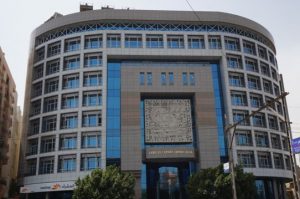

THE African Export-Import Bank (Afreximbank) says financial institutions should step up efforts to finance manufacturing companies to capacitate them to take advantage of the African Continental Free Trade Area (AfCFTA).
The pan-African multilateral trade finance institution’s chief economist, Hippolyte Fofack, challenged banks to provide long-term financing for the free trade area to function.

“African banks need to provide long-term financing to make AfCFTA work.”
The free trade area — which was operationalised in January last year — is an initiative to liberalise goods and services and promote free movement of capital and natural persons among 55 member states of the African Union covering a market with a combined GDP of about $3,4 trillion.
“To be able to provide long-term capital, we need strong financial institutions that have enough capacity to fund manufacturing companies in sectors such as steel and car factories, as well as rail projects.
“African banks need to provide long-term financing to make AfCFTA work. Capital should not be a hindrance to trade among African countries. And we are not talking of short-term trade financing. We are talking of funding massive projects with long gestation periods,” Fofack said during a media engagement as part of the 2022 Afreximbank Annual Meetings.
The 2022 Afreximbank Annual Meetings which run through Saturday June 18, 2022, are being held under the theme ‘Realizing the AfCFTA Potential in the Post-Covid-19 Era by Leveraging the Power of the Youth’.
Sessions include the meetings of the Advisory Group on Trade Finance and Export Development in Africa and the Annual General Meeting of shareholders of the Bank, complemented by a full programme of seminars and plenaries featuring insights from senior government ministers, senior executives of international and continental organisations and authorities, captains of industry, and leading economists, amongst others.
The meetings are being attended by business and political leaders, banking industry professionals, trade and trade finance practitioners and other parties involved in economic development from across Africa and beyond. The Meetings have been ranked among the most important gatherings of economic decision makers in Africa. The meetings focus on key trends affecting the African continent as it forges ahead with implementing the AfCFTA in a changing demographic that is grappling with post pandemic stagflation.
With AfCFTA, expectations are that participating countries will usher in deep reforms including cutting red tape and simplifying customs procedures resulting in billions of dollars in potential income gains.
The free trade area will enable companies in Zimbabwe to expand their markets by exporting goods and services further across the continent than they are currently doing. The AfCFTA is a step in the implementation of African Union Agenda 2063, whose vision is for an integrated, prosperous and peaceful Africa.
The general objectives of the AfCFTA are to create a liberalised market for goods and services.
It seeks to progressively eliminate tariffs and non-tariff barriers to trade in goods, progressively liberalise trade in services, cooperate on investment, intellectual property rights and competition policy, cooperate on all trade-related areas, cooperate on customs matters and implementation of trade facilitation measures, establish a dispute settlement mechanism and establish and maintain an institutional framework for the implementation and administration of the AfCFTA.
This comes after Zimbabwe recently said it was finalising its tariff offer under AfCFTA. The AfCFTA came into effect last year, with Zimbabwe being among the first countries to ratify the deal. For trade to happen under AfCFTA, in addition to ratification, a country needs to make a tariff offer to its partners.
The process includes stakeholder engagement within the government and the private sector.
The government has also come up with the National Quality Policy which will look at both locally manufactured and imported goods and services. newsdesk@fingaz.co.zw